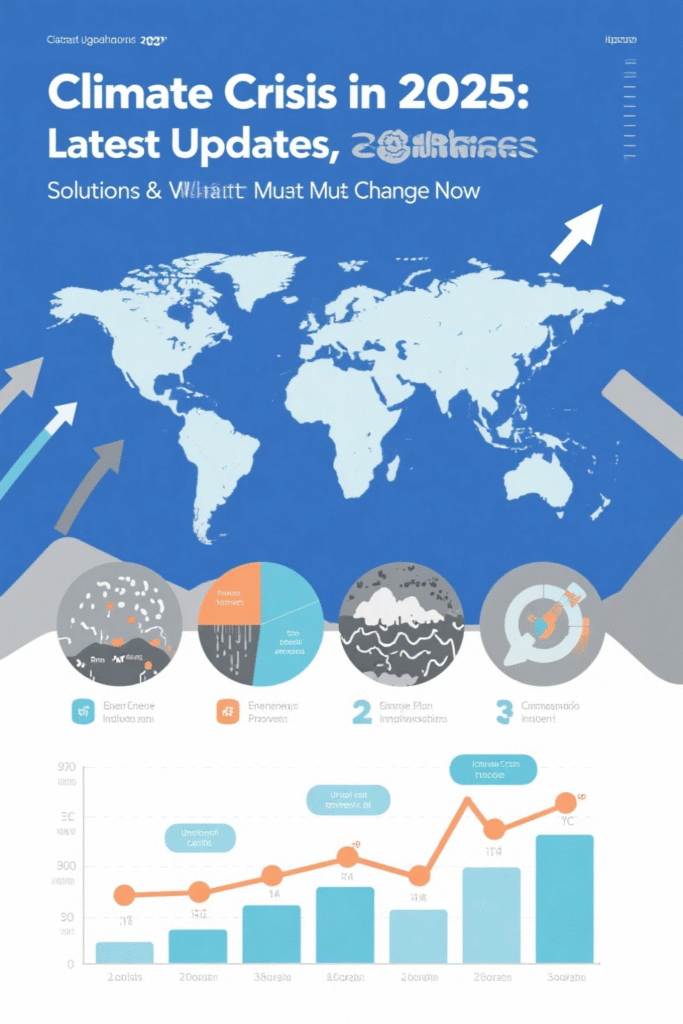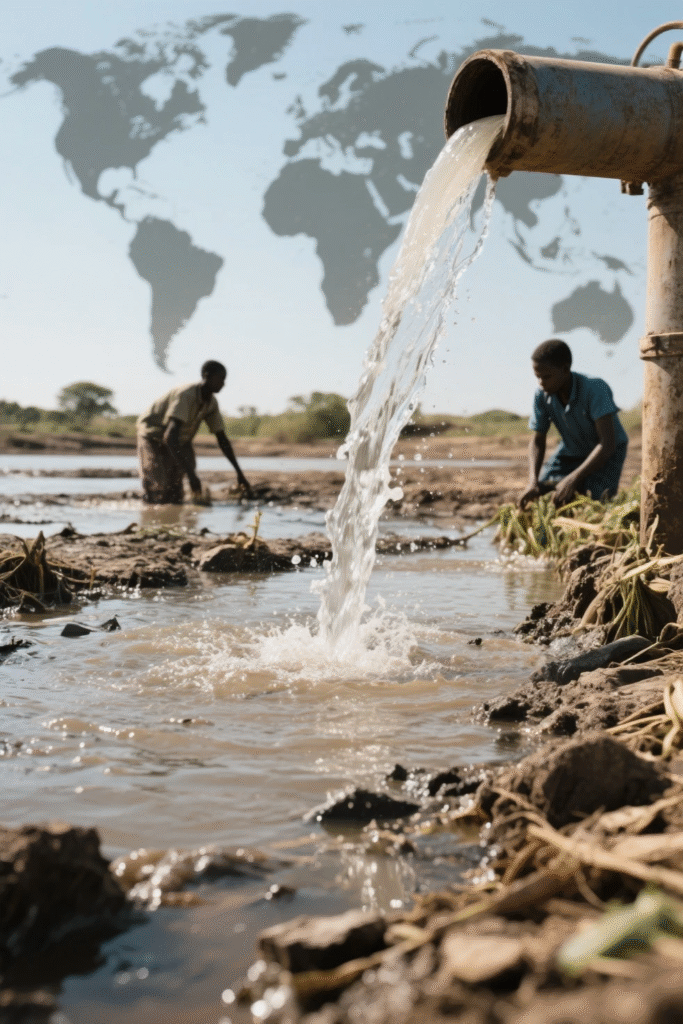Climate Crisis 2025: How Global Warming Is Reshaping Politics, Economies, and Daily Life

By Bizbuzzup
Introduction
The year 2025 is a turning point in the global fight against climate change. Unprecedented wildfires, deadly heatwaves, crop failures, and rising sea levels are no longer predictions—they’re today’s headlines. But beyond the environmental impact, climate change is also transforming economics, global politics, and our daily lives.
In this article, we explore:
- AI Takeover? The Truth About 2025’s Economy
- Passion to Paycheck: The New Creator Economy
- Quantum Computing Explained: The Next Tech Revolution in 2025
- Artificial Intelligence in 2025: What You Need to Know Now
- From Bezos to Musk: The New Space Race Heats Up
1. The State of the Climate in 2025
According to the IPCC’s Sixth Assessment Update, Earth’s average temperature is now 1.35°C above pre-industrial levels—alarmingly close to the 1.5°C threshold that scientists say must not be crossed to avoid catastrophic change.
Key Climate Events in 2025:
- Southern Europe experienced the longest drought in 150 years
- Bangladesh and Indonesia faced mass displacement due to rising seas
- The Amazon rainforest has lost 25% of its carbon absorption capacity
- Arctic ice hit a historic low, opening new but controversial trade routes
2. Climate Refugees and Global Migration
By mid-2025, over 40 million people will have been displaced due to climate-related disasters, according to UNHCR.
Hotspots of Displacement:
- Coastal cities in South Asia (e.g., Dhaka, Mumbai)
- Sub-Saharan Africa due to drought and food scarcity
- Western U.S. and Australia due to fires and water shortages
This mass migration is triggering geopolitical tensions, border pressures, and humanitarian crises.
3. The Economic Toll of Global Warming
Climate change now costs the global economy over $1.8 trillion annually in damages, lost productivity, and adaptation efforts.
Major Impacts:
- Insurance markets are collapsing in high-risk zones
- Agricultural yields in the Global South are down by 20% due to erratic weather
- Supply chains are increasingly vulnerable to floods and fires
- Energy costs are rising as cooling becomes a necessity
However, new green industries are also emerging, creating jobs in renewable energy, carbon capture, and climate tech.
4. Political Shifts and Climate Action
In 2025, climate policy will become a top election issue globally.
Notable Political Moves:
- Germany implemented a strict national carbon budget, penalizing high-emission companies
- The U.S. passed the Green Innovation Act, injecting $400 billion into clean energy infrastructure
- China committed to net-zero by 2060, but faces skepticism due to continued coal use
- The Global South demands climate reparations for historical emissions
At COP30, held in Brazil, a universal climate tax on global shipping and aviation was proposed—a historic first.
5. The Health Impact of the Climate Crisis
Climate change is now a public health emergency, with increasing:
- Heat-related deaths in major cities (e.g., Delhi, Cairo, Phoenix)
- Spread of vector-borne diseases like dengue and malaria into new regions
- Mental health disorders related to eco-anxiety, displacement, and disaster trauma
The World Health Organization (WHO) warns that climate change may reverse decades of progress in public health unless urgent action is taken.
6. Innovation and Hope: The Climate Tech Boom
Amid the gloom, 2025 is also a year of climate innovation.
Promising Technologies:
- Carbon removal startups are scaling rapidly (e.g., Climeworks, Charm Industrial)
- Green hydrogen is powering public transport in Europe and Japan
- AI and satellite tech are helping monitor deforestation and illegal fishing
- Vertical farming is expanding urban food production in New York, Singapore, and Dubai
Private investors—including platforms like ShopMy—are pouring money into climate startups, while youth movements continue to push for accountability and change.
7. What You Can Do in 2025
Individual action is more important than ever. You can:
- Reduce meat consumption and food waste
- Switch to renewable energy providers
- Use electric or public transport
- Support sustainable brands like those featured on Perez Hilton
- Vote for climate-focused policies
Many cities now offer climate score apps, tracking your carbon footprint and offering personalized tips.
Final Thoughts
The climate crisis is no longer a problem for future generations. It’s the defining challenge of our time—and 2025 is the year we either escalate solutions or deepen the damage.
The world stands at a crossroads. Technological innovation, political will, and public participation must align to rewrite the narrative from despair to action.
The planet is speaking louder than ever. Will we listen?
By Bizbuzzup
© 2025 Bizbuzzup. All rights reserved.




















